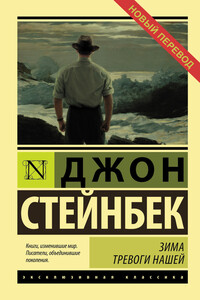There are big, misshapen feet; neat, small
feet; shoes that are polished; curl-toed shoes; shoestrings knotted and
snarled, and careful little bows. You can read character by the feet and shoes.
There are perpetually tired feet, and nervous, quick feet. To remember a
troopship is to remember feet. At night on a blacked-out ship, you must creep
and feel your way among acres of feet.
The men begin to be restless now. It is hard to
sit still and do nothing. Some have brought the little pocket books and others
go to the ship’s library and get books. Detective stories and short stories.
They take what they can get. But there are many men who do not consider reading
a matter of pleasure and these must find some other outlet for their interests.
Several months ago Services of Supply, in
reporting the items supplied to the soldiers’ exchanges, included several
hundreds of thousands of sets of dice, explaining that parcheesi was becoming
increasingly popular in the Army. Those who remember parcheesi as a rather
dumpy game may not believe this if they have not seen it, but it is so. The
game has been streamlined to a certain extent but there is no doubt of its
popularity. The board with its string pockets has disappeared in the interest
of space. Parcheesi is now played on an Army blanket.
It is a spirited, healthy game, and seems to
hold the attention of the players. Some tournaments of parcheesi continue for
days. One, indeed, never stopped during the whole crossing. Another game which
is very popular in the Army is cassino. Its most common forms are stud cassino
and five-card-draw cassino. It is gratifying to see that our new Army has gone
back to the old-fashioned virtues our forefathers lied about.
The ship is very heavily armed. From every
point of observation the guns protrude. This troopship could fight her way
through considerable opposition. On the decks, in addition to the lifeboats,
are hundreds of life rafts ready to be thrown into the sea. These boats and
rafts are equipped with food and water and medicine and even fishing tackle.
Now the men who slept on the decks last night
move inside, as the inside men move out. The wind is fresh. The soldiers take
the shelter halves and begin to build ingenious shelters. Some erect single
little covers between stanchions and rails, while others, pooling their canvas,
are able to make windproof caves among the life rafts. In these they settle
down to read or to play parcheesi or cassino. The sea is calm and that is good,
for great numbers of the men have never been on any kind of boat. A little
rough weather will make them seasick and then there will be an added problem
for the worried and tired permanent force on the boat.
The decks cannot be flushed, for there is no
place for the men to go while it is being done. There are many delicate
problems on such a ship. If another ship should be sighted, the men must not
crowd to one side, for that would throw too great a weight on one side of the
ship and might even endanger her. Our cargo is men and it must be shifted with
care.
Every day there is boat drill. The alarm
sounds, and after the first day of pandemonium the men go quietly to their
stations. There are so many problems to be faced on a troopship.
SOMEWHERE IN ENGLAND, June 23, 1943—A
troopship is a strange community and it reacts as a community. It is unique,
however, in that it is cut off from all the world and that it is in constant
danger of being attacked and destroyed. No matter how casual the men seem, that
last fact is never very far from their minds. In the water any place may be the
submarine and any moment may come the blast that sends the great ship to the
bottom.
Thus the gunners never relax, the listening
devices are tense and occupied. Half the mind listens and waits all the time
and in the night small sounds take on a large importance. At intervals the
guns are fired to see that they are in perfect condition. The gunnery officer
never relaxes. On the bridge the captain sleeps very rarely and takes his
coffee in his hand.


